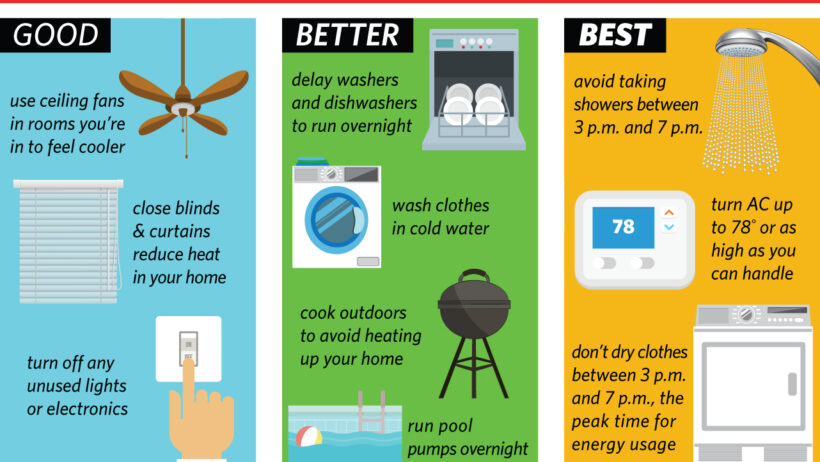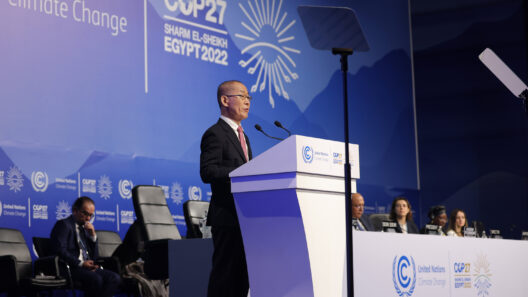In our fast-paced world, conserving energy is critical not only for reducing our utility bills but also for combating climate change and preserving our planet for future generations. Energy conservation is a responsibility we all share. But how can we, as everyday citizens, actively participate in this vital endeavor? Could your daily routine be transformed into a parade of energy-saving tactics? Yes, indeed! Below are some insightful strategies to transform how we consume energy in our lives.
Understanding Energy Conservation
Before embarking on this journey, it’s essential to grasp the core concept of energy conservation. It’s not merely about using less energy; it’s about optimizing our energy use to meet our needs efficiently. By implementing systematic changes, we can minimize waste and enhance our quality of life without compromising comfort.
Evaluate Your Energy Usage
Commencing with an audit of your energy consumption forms the foundation of any conservation effort. Consider employing energy monitors to meticulously track your usage across different appliances. This helps in identifying the energy hogs — those insatiable devices that guzzle power unnecessarily. Once recognized, you can be strategic about when and how you utilize those items.
Embrace Energy-Efficient Appliances
Investing in Energy Star-rated appliances is a surefire way to decrease energy use. These appliances are designed to reduce consumption without sacrificing performance. From refrigerators to washing machines, energy-efficient models embody advanced technology that adheres to rigorous standards, ensuring that they consume less electricity while delivering optimal results.
Leverage Natural Light
One of the simplest ways to conserve energy is to allow nature to illuminate your space. Consider the orientation of your home when designing or renovating; southern exposure can maximize passive solar gain. Use sheer curtains during the day to let in natural light while maintaining privacy. This not only decreases the need for artificial lighting but also creates a warm and inviting atmosphere.
Master Thermal Management
Your home’s insulation is vital in energy conservation. In the winter, effective insulation keeps warm air inside, while in the summer, it keeps heat at bay. Seal drafts around windows and doors with weather stripping and caulking. Invest in a programmable thermostat to optimize your heating and cooling schedules, ensuring energy isn’t wasted when you’re not home.
Opt for Renewable Energy Sources
Transitioning to renewable energy sources like solar or wind can significantly diminish dependency on traditional energy. If feasible, consider installing solar panels on your roof. Many states offer incentives for solar energy investment, making it more accessible. Besides, community solar projects allow individuals who cannot install solar panels to benefit from collective solar energy generation.
Rethink Transportation
Your choice of transportation can also have profound implications for energy conservation. Opting for public transportation, cycling, or walking can enormously decrease your carbon footprint. Carpooling with friends or colleagues is another straightforward approach to reduce fuel consumption and alleviate traffic congestion. If you must drive, maintaining your vehicle properly can increase fuel efficiency significantly.
Be Mindful of Water Heating
Heating water is one of the largest energy expenses in homes. Set your water heater thermostat to 120 degrees Fahrenheit to save energy while still ensuring comfort. Insulating your water heater and pipes can further minimize heat loss. Additionally, consider experimenting with cold-water laundry cycles; modern detergents are remarkably effective at lower temperatures, reducing energy needed for heating water.
Promote Energy Awareness
Sharing knowledge on energy conservation strategies within your community can amplify the impact of these efforts. Host workshops, create informational campaigns, or simply engage friends and family in conversations about conservation techniques. As people become aware, collective action can lead to significant reductions in overall energy consumption.
Implement Smart Technologies
The rise of smart home technologies offers innovative solutions for managing energy use. Smart thermostats, for example, learn your habits and adjust heating and cooling accordingly to maximize efficiency. Smart plugs and energy monitors provide real-time data on appliance usage, empowering you to make informed decisions about energy consumption. Not only do these technologies enhance convenience, but they also promote responsible consumption.
Establish Energy-Conscious Habits
Everyday behaviors significantly influence energy use. Develop the habit of turning off lights when leaving a room and unplugging devices that are not in use. Create a routine of using your dishwasher and laundry machines during off-peak hours to capitalize on utility rate variations. These seemingly minor changes compound to create substantial energy savings over time.
Challenge Yourself to Go Green
So here’s the playful question: are you ready to embark on a 30-day energy-saving challenge? Each day, commit to a new action that promotes conservation — perhaps day one is for turning off lights, while day two could be about experimenting with meatless meals to reduce embodied energy. Not only does this challenge create a lasting commitment, but it also fosters a sense of community when shared with friends and family. Together, taking on this challenge unites us towards a common goal of sustainability.
Conclusion
Ultimately, conserving energy is a journey—a continuous process of evaluating habits and adapting over time. Recognizing the impact of your choices on the environment serves as a powerful motivator. The cumulative effect of small, conscientious actions can lead to a more sustainable world and a brighter future for generations to come. Embrace these strategies enthusiastically, and contribute to a thriving and resilient planet.








